
by cjxpadmin | Mar 31, 2013 | This Issue's FEATURE, Uncategorized
By Sheena Williams
When going on an interview, we feel excitement and anxiety about the possibility of securing this great job we’ve discovered. We go there filled with confidence! We know everything about everything, and there is nothing new that is going to be shown to us! We start talking to the employer and continue talking and talking and talking. We answer all of the questions with fully detailed explanations, and in some cases, more explanation than was needed. We’re feeling great! Yes, we are!
 We know everything about that job, even the job of the person doing the hiring. In fact, we know it so well that we tell the person doing their job that we know how to do their job, and perhaps, better. We’ve hired and fired people and not only have we managed whole battalions of people, we run a sewing circle on Friday! We leave the interview satisfied that the employer knows how much they need us and what an asset we are to their team. It would be stupid for them not to call us… until they don’t call. Think about it! Would the employer dare to not hire you? Did you think the employer did not like you? Did you feel he/she was not interested enough in you? Could it be that they are just not smart enough to hire you? Or, maybe, could it be you? Hmmm….
We know everything about that job, even the job of the person doing the hiring. In fact, we know it so well that we tell the person doing their job that we know how to do their job, and perhaps, better. We’ve hired and fired people and not only have we managed whole battalions of people, we run a sewing circle on Friday! We leave the interview satisfied that the employer knows how much they need us and what an asset we are to their team. It would be stupid for them not to call us… until they don’t call. Think about it! Would the employer dare to not hire you? Did you think the employer did not like you? Did you feel he/she was not interested enough in you? Could it be that they are just not smart enough to hire you? Or, maybe, could it be you? Hmmm….
There are times in an interview when we are in such a rush to let them know how fantastic we are, that we  become overbearing. No one is asking you to dumb yourself down or to not tell them what you know. But when you start off telling the employer how to run their business, (that was running perfectly well before you got there, or else they would not have a place to hire you) it can rub employers the wrong way. When you come in telling the hiring manager that you are looking to move up in a company, and the only place to move up to is their position, that might seem a little bit threatening. If you have an anecdote about everything under the sun within a ten-minute interview, you may come off as annoying.
become overbearing. No one is asking you to dumb yourself down or to not tell them what you know. But when you start off telling the employer how to run their business, (that was running perfectly well before you got there, or else they would not have a place to hire you) it can rub employers the wrong way. When you come in telling the hiring manager that you are looking to move up in a company, and the only place to move up to is their position, that might seem a little bit threatening. If you have an anecdote about everything under the sun within a ten-minute interview, you may come off as annoying.
So to help you, we have come up with a check list of things that you may need to work on before you go to your interview.
- Can you go 5 sentences without using an “I” statement?
- Do you correct the employer about their business policy?

- Do you not read instructions on your job application because you already know what to do?
- Do you talk about the incompetence of your last employer and/or staff?
- Do you show up unannounced to see the hiring manager?
- Do you respect boundaries?
- Do you go into interviews unprepared, because you know everything about this company that you’ve never been to, and never worked for, and never researched?
- Do you monopolize the time of a recruiter knowing they have other people to talk to?
- Do you call to get specifics on things that you could research yourself?
- Do you go through private information?
- Can you take polite hints?
- Do you not allow another person to finish their thought before jumping in?
- Do you have demands even though you don’t have the job yet?
- Are you only focused on the salary of the job that you’re interviewing for?
- Do you leave multiple messages when you follow up (like a bill collector)?
- Do you feel that you have paid your dues… at a company you have never worked for, never been to, and knew nothing about until the job became available?
- Are you rude to random people coming in and going out of the office?
If you find yourself doing any of these things, scale back a little bit. There is nothing wrong with being smart or enthusiastic, but no one likes a know-it-all.
There is nothing wrong with being proud of the work that you have done, but you need to give the employer time to get to know you. Don’t project an aura of “they need me,” and not the other way around. You may be  the greatest thing since sliced bread, but if you annoy the employer and you haven’t even gotten out of the interview, they are just going to leave you on the shelf for the next unfortunate employer to do the same thing.
the greatest thing since sliced bread, but if you annoy the employer and you haven’t even gotten out of the interview, they are just going to leave you on the shelf for the next unfortunate employer to do the same thing.
Most of the above problems come from insecurity. When you are not confident in yourself, you over compensate by doing projecting habits that could be misconstrued as annoying. If you find yourself doing any of the above things, it helps to take a step back and listen, instead of talking. Sometimes your actions speak 8 times more loudly than your words ever could.
Here are some ways to combat being annoying:
- Smile
- Dress appropriately for the interview
- Bring your resume and be prepared to answer direct questions
- Do some research on the company where you are applying
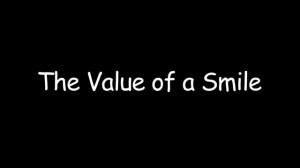
- Do not go in there with any expectations other than having a great interview
- Do not correct the employer during the interview
- Be polite to everyone
- Smile (again)
- Do not use the word “uh, um, like” every time you answer questions
- Respect boundaries of those around you and the office that you are in
- Watch for body language; someone may be trying to tell you something
- Understand a new job means new challenges
- If the employer is busy, don’t monopolize their time with inane questions
- Be classy when talking about your last employer, even if you left on not-so-great terms
- Take a deep breath; you are going to do fine
Good luck on your next interview! △

by cjxpadmin | Dec 31, 2012 | January 2013 Magazine, This Issue's FEATURE, Uncategorized
By Sheena Williams
It’s that time again! The holidays are over, and it’s time to take down the tree. Time to reflect on what a year 2012 has been. The ups and downs, the high and lows, and the sometimes those days that were just middle of the road! It’s been a year to remember and we at CampusJobXpress.com have immensely enjoyed being part of your year. Some of our most memorable moments this year have been with you. We can’t thank you enough for allowing us to be a small portion of your year. We have been privileged to see you become awesome job seekers and have had the chance to help you along the way.
In an effort to prepare you for the New Year, we have made a list of things to keep in mind as you get started with preparing for your job search for the coming year with some helpful resolutions to get you started. These resolutions are in no way mandatory, but we find that these things help us get ourselves together as we go about our daily lives. Some of the things on the list are things you might already know how to do, but check it out — you might find a different way of doing them!
- Learn To Delegate — You can only do so much. You’re trying to find work, and trying to get
 the kids fed, then on top of that, the dog needs water. As you are at home more now, you can take a little more of the workload to help out and keep the person working in your home afloat, but there is no sense in taking it all on yourself. If you have kids, make a chore list that leaves you time to look for a job. When your working spouse gets home, maybe they can walk Bruno as you check your work emails. Keeping your stress level low is key when searching for a job.
the kids fed, then on top of that, the dog needs water. As you are at home more now, you can take a little more of the workload to help out and keep the person working in your home afloat, but there is no sense in taking it all on yourself. If you have kids, make a chore list that leaves you time to look for a job. When your working spouse gets home, maybe they can walk Bruno as you check your work emails. Keeping your stress level low is key when searching for a job.
- Get Organized — Everything has a time and a place. Believe me when I say, it certainly makes your time a lot better when you know where that place is. Know where your files are on the computer. Color-code some bills for easy paying. Set up a house chart for the family. Put your coupons in alphabetical order. Prioritize your day and have your resume at your fingers tips always. Any of these things can make your life easier and get you to work or an interview faster.
 Ramp Up Your Resume — With a new year, comes a new resume. Look over your job history and see what needs to be tweaked. Maybe check in on your References and wish them a Happy New Year. Maybe you took a class in your down time and you have a new skill to add? All of these things can beef up a sparse resume and give an edge to an already spectacular one!
Ramp Up Your Resume — With a new year, comes a new resume. Look over your job history and see what needs to be tweaked. Maybe check in on your References and wish them a Happy New Year. Maybe you took a class in your down time and you have a new skill to add? All of these things can beef up a sparse resume and give an edge to an already spectacular one!- Learn A New Skill — As mentioned above, learning a new skill is great. I don’t care if it’s Brazilian Macrame! It has given you a skill that you can add to your resume. Maybe it took you 7 weeks to learn to do whatever you did, but that’s dedication, reliability, and hard work that can now be put in your list of stellar attributes.
- Give Back To The Community — This one is kind of a no-brainer. When you help others, it takes your mind off of your problems. That means less stress for you! When there is less stress
 for you, there is less stress for everyone. When there is less stress for everyone, everyone can be happy. Giving back is a gift that keeps on giving and you should totally take advantage… and take the time to network while you’re there!
for you, there is less stress for everyone. When there is less stress for everyone, everyone can be happy. Giving back is a gift that keeps on giving and you should totally take advantage… and take the time to network while you’re there!
- Find A Career, Not A Job — So you were working at a job that you lost, and you find that you are not that broken up about it. It’s because it was a job that paid the bills. It was a job you took because you needed to make some money, and this was the end result. Your next step may include taking another job like that, but only if it fits into your overall plan of getting a career. While we work, we become so wrapped up in having a steady pay check, we forget what our dreams are. So make sure that while you are looking for that job that tides you over, you are also looking for ways to fit it into your dream job!
- Stop Beating Yourself Up — Negativity not only comes from the television and outside
 sources, it comes from you. Every time you drop a glass of water and call yourself stupid. Every time you don’t get dinner out to the table on time or when you berate yourself for being lazy. Every time you say something negative about yourself, you internalize it and your mind takes over the negative affirmation. We are all about taking a realist look at ourselves, but nothing about being realistic is negative. You may need to change your style of dress, but telling yourself you’re a slob is not helpful. Instead, tell yourself that there are some clothing choices that would be better for my job search and make those changes. No need to call yourself names over things that can easily be changed!
sources, it comes from you. Every time you drop a glass of water and call yourself stupid. Every time you don’t get dinner out to the table on time or when you berate yourself for being lazy. Every time you say something negative about yourself, you internalize it and your mind takes over the negative affirmation. We are all about taking a realist look at ourselves, but nothing about being realistic is negative. You may need to change your style of dress, but telling yourself you’re a slob is not helpful. Instead, tell yourself that there are some clothing choices that would be better for my job search and make those changes. No need to call yourself names over things that can easily be changed!
- Do Something Nice For Others — This may sound like volunteering, but it’s not. Doing something nice for others is a way to show appreciation for the support and love that those around you are giving you while you look for work. Maybe your husband is watching the kids so you can fit some “me-time” in to work on your resume. Maybe your wife is keeping your desk and home office organized while you are out pounding the pavement looking for a job. Whatever it is, doing something nice reminds the other person, whoever that is, that you are a team and are in this together.
 Set Clear Goals — Know what you want and how you’re going to do it! It’s not enough to say I am going to get this job and live a fantastic life! You need to know how you’re going to get it. Are you going to go to school and learn some skills? Are you going to apply in different areas? Maybe you’re going to open up your circle in the networking world? However you plan on reaching that goal, you need to have a clear picture in your head of how you’re going to do it.
Set Clear Goals — Know what you want and how you’re going to do it! It’s not enough to say I am going to get this job and live a fantastic life! You need to know how you’re going to get it. Are you going to go to school and learn some skills? Are you going to apply in different areas? Maybe you’re going to open up your circle in the networking world? However you plan on reaching that goal, you need to have a clear picture in your head of how you’re going to do it.- Keep Your Goals Realistic — While you’re dreaming big, let’s keep the goals realistic. Let’s say your goal is to be an international pop star. Forget the statistic for becoming an entertainer. You can’t sing, you’ve don’t have any dance moves, and you’ve never been on stage a day in your life. So the goal is not realistic. Not because you can’t
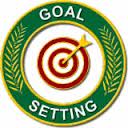 do it. You can do anything with hard work, but you’re not going to get it done with the skill set you have now. Research your goals and find out what it takes to reach them. Having a clear goal is awesome, but without the baby steps to make them work, they are only pipe dreams.
do it. You can do anything with hard work, but you’re not going to get it done with the skill set you have now. Research your goals and find out what it takes to reach them. Having a clear goal is awesome, but without the baby steps to make them work, they are only pipe dreams.
- Stay Fit And Healthy — Wash your hands, get your vitamins, and for the love of Pete, keep some cold medicine around the house. The New Year can be a bit blustery and unfortunately, with all the pollen around and all the germs and sneezing dancing through the air, you might catch a cold of epic
 proportions! Nothing will lay you low and eat away at your savings like medical expenses. Take advantage of all free health fares. Call the health department for any deals on health care and pay attention to the weather.
proportions! Nothing will lay you low and eat away at your savings like medical expenses. Take advantage of all free health fares. Call the health department for any deals on health care and pay attention to the weather.
- Find A Healthy Way To Relive Stress — Find a hobby. In fact find two! You need to find something that lets you take a step back and center yourself. Stress is a killer, and if you are not managing it, then, you’ll wind up with bigger problems then just being unemployed. Maybe taking long walks around the neighborhood is your thing. Try painting. There are thousands of cheap crafts and projects that you can get into to keep yourself busy as well as stop yourself from worrying!

We hope that you have not only a Happy New Year, but a Happy Rest Of The Year. We, at CampusJobExpress.com, are committed to getting you back to work and look forward to another year of working with all of you! △
by cjxpadmin | Dec 19, 2012 | Job Club Heart of Texas, Job Search, Uncategorized
To start this discussion we would like to give the most up to date answer we have received regarding UI Benefits from the Heart Of Texas Workforce Center:”You can still make your payment request on your scheduled day even if that day is the 29th , 30th, or 31st.”We want to be sure you understand the above statement does not guarantee you will receive benefits.
The following is a piece of news regarding this situation:
“Unemployment Extension News Update 12/18/12: The National Employment Law Project (NELP) reports that Representatives Sander Levin (D-MI) and Lloyd Doggett (D-TX) joined with Senator Jack Reed (D-RI) and unemployed workers at a press conference to implore Congress to renew federal unemployment insurance before it expires on Dec. 29 – regardless of whether a deal is made on the fiscal cliff.”
On another note, we have a couple of Job Fairs coming up after the New Year. January’s job fair will concentrate on the Food Service industry and February’s job fair will be open to any type of business.
Two things to remember: First, make sure that your WorkinTexas profile is up-to-date and Second, don’t forget to upload your resume to your Campusjobxpress.com profile. We will be sure to provide more information as we get closer to the event date. Stay Tuned!If you have any questions please ask and we will continue to get you the most accurate answers as quickly as possible. Everyone have a wonderful holiday and for those who will be traveling, be safe. MERRY CHRISTMAS EVERYONE!
NOTE FROM THE PAGE ADMINISTRATORS: As a side note we will not be in the office from Dec. 21st -Jan 2nd. There will be a job club for the next week, but we will not be available in person at the Workforce Solutions Center until Jan. 2nd. Once again have a safe and happy holidays!

by cjxpadmin | Nov 1, 2012 | November 2012 Magazine, Uncategorized
by Norman Sternfeld
Give The Employer What They Want
The number one goal of a resume is to get you invited for an interview. In order to make this happen, your resume needs to make you look like a great fit for the job being offered. A resume is more than a report card or simply a description of what you’ve done. Think of your resume more as a marketing piece where you are selling yourself as a valuable asset to the company posting the job. Before you write one word, this  approach will have you asking yourself, “What is it that an employer is looking for in an ideal candidate for this position?” Where you will find the answer to this question will be in the qualifications posted for the job in which you are interested. So, the first step in preparing to write your resume is to carefully consider what you want to say. The most important thing to make sure you say is how you fit the qualifications for the job for which you are applying. The following ideas will help you begin to put your thoughts together.
approach will have you asking yourself, “What is it that an employer is looking for in an ideal candidate for this position?” Where you will find the answer to this question will be in the qualifications posted for the job in which you are interested. So, the first step in preparing to write your resume is to carefully consider what you want to say. The most important thing to make sure you say is how you fit the qualifications for the job for which you are applying. The following ideas will help you begin to put your thoughts together.
Matching the Qualifications for a Job
 Most job postings will list some qualifications for the job that’s being offered. Usually that will include some amount of experience in that type of work. Many jobs require that you have done the same or similar work elsewhere and that you already know the job, the tools, the technology, and the information necessary to get the job done right away and with little or no training. Some companies only require someone who knows something about the work, has related or transferable skills, some useful knowledge and has shown a good aptitude for learning plus a strong work history. All of this guides you in preparing your resume to make sure that you communicate how your experience has prepared and qualifies you to do the job for which you are applying.
Most job postings will list some qualifications for the job that’s being offered. Usually that will include some amount of experience in that type of work. Many jobs require that you have done the same or similar work elsewhere and that you already know the job, the tools, the technology, and the information necessary to get the job done right away and with little or no training. Some companies only require someone who knows something about the work, has related or transferable skills, some useful knowledge and has shown a good aptitude for learning plus a strong work history. All of this guides you in preparing your resume to make sure that you communicate how your experience has prepared and qualifies you to do the job for which you are applying.
The other qualification often mentioned in job postings is an educational background in the work or field.  That may mean that you have graduated high school or possess a college degree. An educational background may also mean that you have some relevant vocational or “on-the-job” training. You may have taken classes or training in the field for which you are applying. Think of the classes, courses, workshops,
That may mean that you have graduated high school or possess a college degree. An educational background may also mean that you have some relevant vocational or “on-the-job” training. You may have taken classes or training in the field for which you are applying. Think of the classes, courses, workshops, 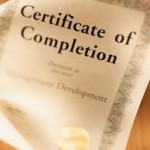 books, training, and lessons you have taken worth mentioning to impress the perspective employer with what you know. It will be especially important to mention any certificates you have earned, any licenses, or any specific tools or technologies that you have trained on that has prepared you or qualifies you to do the job.
books, training, and lessons you have taken worth mentioning to impress the perspective employer with what you know. It will be especially important to mention any certificates you have earned, any licenses, or any specific tools or technologies that you have trained on that has prepared you or qualifies you to do the job.
Key Words
While preparing to write your resume, list the words that are used in describing the qualifications listed for the job you want. Use those very words as best as you can in describing your own experience. These will likely be the “key words” that the initial screener will look for in determining which resumes get a closer look. The better your resume can match your experience, your education, and your other qualifying factors with the key words that are listed as job qualifications, the more closely your resume will be considered.
the job you want. Use those very words as best as you can in describing your own experience. These will likely be the “key words” that the initial screener will look for in determining which resumes get a closer look. The better your resume can match your experience, your education, and your other qualifying factors with the key words that are listed as job qualifications, the more closely your resume will be considered.
The Other Important Qualifications
There are other qualifying factors that may or may not be included in a job posting. There are several qualities that any employer is looking for in a good candidate. Qualities such as reliability, a proven work history, the ability to work with others, and your overall character are important to demonstrate on your resume. Even if these are not listed as a job requirement, you want to make sure your resume says there is a lot about you qualifying you as a potential employee. A strong showing of these other qualifying factors will make you appear as an excellent applicant.
your resume. Even if these are not listed as a job requirement, you want to make sure your resume says there is a lot about you qualifying you as a potential employee. A strong showing of these other qualifying factors will make you appear as an excellent applicant.
Proven Success At Work
An employer wants to know that you are a great employee and that you have had success on your past jobs. Success will look like accomplishments and recognition you have achieved along the way. Accomplishments may include promotions you’ve received, levels of responsibilities you have been given, special projects or performance goals for which you’ve been recognized. You will want to make sure you mention these accomplishments in ways that anyone reading your resume would be impressed. You may also want to mention any “outstanding” or “excellent” evaluations you may have received while on a job. You want to communicate that in the past, your work has been so good that others recognized you. This would qualify you as the kind of person that any company would want to consider hiring.
Adaptability And The Willingness To Get Along With Others
 Most jobs will require you to work as part of a team or at least with other people. Most jobs also require that each employee is willing to do what’s asked of them and that you are adaptable and flexible. This may include the kind of work you may be asked to do as well as the hours you may be asked to work. They may want you to be willing to learn or be trained in new areas. They may want you to be able to travel or even to relocate. You want to use your resume to make it clear what you are willing and able to do in terms of getting along with all kinds of people as well as your willingness to do what the company wants from an employee they will want to hire.
Most jobs will require you to work as part of a team or at least with other people. Most jobs also require that each employee is willing to do what’s asked of them and that you are adaptable and flexible. This may include the kind of work you may be asked to do as well as the hours you may be asked to work. They may want you to be willing to learn or be trained in new areas. They may want you to be able to travel or even to relocate. You want to use your resume to make it clear what you are willing and able to do in terms of getting along with all kinds of people as well as your willingness to do what the company wants from an employee they will want to hire.
A Great Character
Job postings will generally not ask that a candidate be a great person and have a strong character, but you can assume that any employer wants employees who are dependable. You may know that you are a good employee and that you’re honest and can be trusted, but the future employer won’t know unless you tell 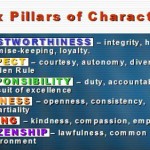 them. Employers want to know that you will show up and that your attendance and punctuality have been shown to be outstanding. They want to know that you are mature in your approach to work, that you have a strong work ethic. This means that you value your work, you respect the company, and that you are reliable, dependable and responsible when it comes to work. Be sure, in writing your resume, that you impress upon the future employer that you bring a strong character to your job. Think of the four or five things that describe your strengths of character that you bring to a job. This is what you want the employer to know about you; make sure they are mentioned in your resume.
them. Employers want to know that you will show up and that your attendance and punctuality have been shown to be outstanding. They want to know that you are mature in your approach to work, that you have a strong work ethic. This means that you value your work, you respect the company, and that you are reliable, dependable and responsible when it comes to work. Be sure, in writing your resume, that you impress upon the future employer that you bring a strong character to your job. Think of the four or five things that describe your strengths of character that you bring to a job. This is what you want the employer to know about you; make sure they are mentioned in your resume.
Your Intentions
Employers want to know that you will stay on the job and that you and the job are a good fit for each other. They want to be sure that the time and cost of training and developing you will be a good investment. It will be wise to mention both in your resume and your cover letter how this position fits for you, your background and interest in this kind of work and that your plans are to have, hold on to and succeed on this job.
Conclusion
Providing a resume that gives the employer an impression that you are right for the job will generally require you to customize every resume you submit. Resume writing is an ongoing process. Rather than having one resume to hand around to all employers you are interested in working for, think of preparing a customized resume for each and every job to which you apply. Always keep a copy of every resume you craft. You will get better with every attempt and you will have a lot of parts to piece together for every opportunity you pursue. Good luck and make yourself look like you were made for that job! Δ

by cjxpadmin | Aug 27, 2012 | September 2012 Magazine, Uncategorized
From Ash to Ask
by Sharon Rector
Understanding How Language Can Affect Your Income
In the summer of 1971, I was afforded the opportunity to attend Baylor University’s Upward Bound Program as an incoming freshman. I had just graduated from high school with good grades and a great overall school record on my way to college and  eventually a good paying job. I never envisioned that I was about to learn a valuable and cautionary life lesson that has remained with me throughout my personal and professional life. By sharing my story, someone may reflect on how job opportunities can often hinge on their ability to speak and write effectively.
eventually a good paying job. I never envisioned that I was about to learn a valuable and cautionary life lesson that has remained with me throughout my personal and professional life. By sharing my story, someone may reflect on how job opportunities can often hinge on their ability to speak and write effectively.
That summer, the very first college course I enrolled in was a Language/Speech Class (not necessarily of a remedial nature) although economically, I was considered to be an underprivileged student, however, just a regular freshman speech class required of all incoming students. The underlying purpose of the course, in the mindset and the philosophy of the Upward Bound Program, was to give economically challenged students like me a “head start” on their pathway to a college degree and a bright financial future.
The course syllabus included students speaking in front of their peers on a variety of topics chosen by the professor. The professor’s goals were dual. First, he wanted to gauge our life experiences as well as listen to how we could openly express those experiences through speaking publicly. Simple. No problem. I knew how to speak in front of people. I had been doing that all my life!
While daydreaming in class, I inadvertently missed a couple of pertinent points in reference to the grading system of the course.  In order to stay abreast of what the professor explained to the class, I arrogantly raised my hand and bravely addressed the professor, “May I ash a question, please?” The professor who had gravitated from one side of the classroom back toward me looked stunned and gave me a stare that surely meant that I had just done something wrong. But what did I say?
In order to stay abreast of what the professor explained to the class, I arrogantly raised my hand and bravely addressed the professor, “May I ash a question, please?” The professor who had gravitated from one side of the classroom back toward me looked stunned and gave me a stare that surely meant that I had just done something wrong. But what did I say?
I was perplexed with no clue of what possibly could have caused such a reaction, but I was sure that I had done something that was not quite appropriate. He initially did not answer my question. However, immediately after class, he pulled me aside and requested that I repeat the question I had posed to him earlier. I could see that he was listening more intently, so I humbly muttered to him again, “I just wanted to ash you a question….” He stopped me immediately and thankfully, without embarrassing me any further, he calmly and compassionately explained to me that I had incorrectly pronounced the word “ask” and how it might be attributed to my cultural and social surroundings. To my astonishment, my speech professor insisted that I repeat the three-letter word every class period for weeks until I no longer mispronounced what I thought was such a simple and unassuming word.
The straightforward lesson in this story is that the manner in which we express ourselves, verbally and in writing, functions as a mirror into who we are as communicators and most importantly, who we could be as potential employees. Proper language is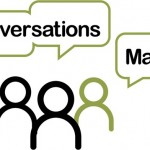 essential to effective communication. Without honing this skill, your message may be lost or you could be ignored entirely.
essential to effective communication. Without honing this skill, your message may be lost or you could be ignored entirely.
Most people are so familiar with their own language that there is little to no realization as to how it affects their daily lives. Language usage exemplifies how others may evaluate our belief system and values, and how well we can relay ideas, emotions, and yes, even logic. Among those evaluating you, could very well one day be a future employer who will determine your potentiality as a part of their company’s workforce and your monetary value.
In the website E-How, contributor Felicia Dyer’s “Language is the Tool,” she states that one must develop proper oral communication skills to adequately organize perceptions and develop higher order cognitive processes. She also surmises that poor language development, therefore, affects a person’s ability to be a problem-solver and to think independently.
Lera Boroditsky, author of “How Does Our Language Shape the Way We Think,” writes that the simple cognitive faculty of language could affect someone getting an education, meeting new friends, holding a job, or even starting a family.
 Recently, I took an impromptu test titled The Grammar Income Test. If you have come to this article, trying to find where you fall on the Salary Scale, I see you have also taken the test. I will get to that information shortly. This test, which is administered to college students through the University of Mottsburgh Occupational University Grammatical Knowledge, assesses and rates the correlation between grammar/language (inclusive of spelling, punctuation, capitalization, and usage skills) and a person’s potential income. According to the scale, I qualified for employment as an upper management individual. Ironically, when I retired in 2003, it was as an assistant principal of an elementary school with enrollment of approximately 1,300 students. Could this assessment be a valid indicator of how language affected my income potential? Quite possibly. Well, let’s take a look at the answers as well as the projected salary and occupational level of what you did.
Recently, I took an impromptu test titled The Grammar Income Test. If you have come to this article, trying to find where you fall on the Salary Scale, I see you have also taken the test. I will get to that information shortly. This test, which is administered to college students through the University of Mottsburgh Occupational University Grammatical Knowledge, assesses and rates the correlation between grammar/language (inclusive of spelling, punctuation, capitalization, and usage skills) and a person’s potential income. According to the scale, I qualified for employment as an upper management individual. Ironically, when I retired in 2003, it was as an assistant principal of an elementary school with enrollment of approximately 1,300 students. Could this assessment be a valid indicator of how language affected my income potential? Quite possibly. Well, let’s take a look at the answers as well as the projected salary and occupational level of what you did.
| Question |
Answer |
Correction |
| 1. Her choice will strongly effect the outcome. |
Incorrect |
Her choice will strongly affect the outcome. |
| 2. We have alot of work to do |
Incorrect |
We have a lot of work to do. |
| 3. Mottsburgh is a very busy industrial city, thousands of cars and trucks move through it every day. |
Incorrect |
Mottsburg is a very busy industrial city; thousands of cars and trucks move through it every day. |
| 4. “I suppose”, she remarked “that success comes only with time.” |
Incorrect |
“I suppose,” she remarked “that success comes only with time.” |
| 5. The company should receive the package tomorrow. |
Correct |
|
| 6. Its impressive to hear what she has done. |
Incorrect |
It’s impressive to hear what she has done. |
| 7. She was late, however, she did make the presentation. |
Incorrect |
She was late; however, she did make the presentation. |
| 8. Give the book to whom? |
Correct |
|
| 9. When the ship arrives we can begin the journey. |
Incorrect |
When the ship arrives, we can begin the journey. |
| 10. We rafted down the grand mountain river. |
Incorrect |
We rafted down the Grand Mountain River. |
| 11. The name of the book was “Outbreak.” |
Incorrect |
The name of the book was “Outbreak.” |
| 12. There were four in the group: Ann, Jim, Theo, and Amanda. |
Correct |
|
| 13. He sings good. |
Incorrect |
He sings well. |
| 14. You shouldn’t lie on the wet grass. |
Correct |
|
| 15. He paid all the interest on the principal. |
Correct |
|
| 16. I wish to go irregardless of his decision. |
Incorrect |
I wish to go, regardless of his decision. |
| 17. He doesn’t know history very well. As you can see from his answers in class. |
Incorrect |
He doesn’t know history very well, as you can see from his answers in class. |
| 18. He imagined that Hawking would have all the answers but he just posed more questions. |
Incorrect |
He imagined that Hawking would have all the answers, but he just posed more questions. |
| 19. Spiraling in the Andromeda Galaxy, Dr. Vilhelm insists that there is alien life on the Andromeda planet called Lanulos. |
Incorrect |
I really don’t know why this statement is incorrect, other than Lanulos is considered an imaginary planet. Can anyone help with this? |
| 20. We packed all of our luggage, then we were on our way to the airport. |
Incorrect |
We packed all of our luggage, then, we were on our way to the airport. |
Now for the salary part. This is where you discover that your answers can determine your salary capacity and occupational level. Take a look at this.
| # WRONG |
PROJECTED SALARY |
OCCUPATIONAL LEVEL |
| 0 to -4 |
$150,000 and above |
Top Executive |
| -5 to -6 |
$90,000 to $150,000 |
Upper Management |
| -7 to -8 |
$60,000 to $90,000 |
Key Personnel |
| -9 to -12 |
$25,000 to $60,000 |
Semi-Skilled |
| -13 to -18 |
$10,000 to $25,000 |
Unskilled |
| -20 or more |
$0 to $10,000 |
Unemployable |
As an assistant principal, I witnessed numerous interviews where potential employees used a colloquial such as “ain’t” or mispronounced the word “children” and replaced it with the word “chilren”, or incorrectly used punctuation or verb usage on their resumes. In the eyes of the school administration, these errors were unforgivable and no three-piece suit or well-manicured hairstyle could overcome the damage. Therefore, these applicants were almost always deemed not qualified, a bad hire, or potentially unemployable.
The thesis of the Grammar Income Test was a very simplistic one. Individuals who make such errors and mistakes in oral and written presentations are often viewed as not intelligent, or maybe incompetent, and usually such articulation errors are indicative of a lack of social and educational maturity. Such subtleties can result in prejudices against you and could keep you from getting the job and income you deserve.
The reality is that some people believe that they are just not adept at learning to speak correctly. Then there are some who do not realize their grammatical errors until it’s too late. Be very cognizant not to de-emphasize your communication skills by keeping the following points in mind.
- Never use colloquial language or slang. No matter how relaxed the atmosphere might be, you never know what subtleties a potential employer may be targeting.
- When preparing your resume always spell check, then edit, spell check, and edit again. People sometimes have the
 propensity to write in the same mode as they speak. Keep in mind that incorrect language is still incorrect language, whether it’s oral or written.
propensity to write in the same mode as they speak. Keep in mind that incorrect language is still incorrect language, whether it’s oral or written.
- Know the company to which you are applying. Know the company “buzz” words. Know how to pronounce those words and make sure you know what those words mean.
- Speak clearly and decisively. Don’t add words that you are unsure of and by all means, keep it simple and direct.
- Practice responses to possible questions. If you have researched the company and know the position you are applying for, you should have an idea of questions that could potentially be asked of you.
- Critique yourself. If it doesn’t sound correct to you, it won’t sound correct to your audience. Listen to yourself speak in front of a mirror. Sometimes, you can be your own best critic.
Much time has passed and it’s been quite a successful journey since the days of ash to ask. I stand in amazement on the impact of one moment in time and the empathy of a caring college professor who made me aware of how mispronouncing a simple three-letter word could have negatively changed my life. In retrospect, he unknowingly did me a favor that lasted a lifetime. I leave you with this story to ponder and a notable quote from English Philosopher Ludwig Wittgenstein (1889).
“The limits of my language mean the limits of my world.”
NOTE: Just a small note regarding the Grammar Income Test. This test was a bit fabricated. However, the concept of the test is very real.
Every day individuals who make grammatical errors are victims of a pervasive but seldom discussed prejudice. People assume that those who make frequent grammatical errors are unintelligent, not very knowledgeable, and incompetent. None of this may be true. Language habits are more indicative of social background than education and ability. However, any business executive will support the notion that grammatical skill directly affects promotion. So, the idea behind the Grammar Income Test is valid, although the scored income level may not be. △
by cjxpadmin | Jul 25, 2012 | Uncategorized
Discussion 2:
This week we need to discuss your resume and profile. This important to us and you because this is how selections are made.
In talking to many of you, lots of resumes are being sent out with out much success. This may be due to your resume not giving the right information or format.
A resume should be clear and easy to read. Objectives are not necessary.
If you have many jobs over a short period of time, change your resume to a functional resume.
If you have not loaded your resume to Campusjobxpress, please do so. We can not consider you for any job with your resume and profile.
Rachel has already begun the search for employers and we have jobs that may have to be filled before the job fair

 We know everything about that job, even the job of the person doing the hiring. In fact, we know it so well that we tell the person doing their job that we know how to do their job, and perhaps, better. We’ve hired and fired people and not only have we managed whole battalions of people, we run a sewing circle on Friday! We leave the interview satisfied that the employer knows how much they need us and what an asset we are to their team. It would be stupid for them not to call us… until they don’t call. Think about it! Would the employer dare to not hire you? Did you think the employer did not like you? Did you feel he/she was not interested enough in you? Could it be that they are just not smart enough to hire you? Or, maybe, could it be you? Hmmm….
We know everything about that job, even the job of the person doing the hiring. In fact, we know it so well that we tell the person doing their job that we know how to do their job, and perhaps, better. We’ve hired and fired people and not only have we managed whole battalions of people, we run a sewing circle on Friday! We leave the interview satisfied that the employer knows how much they need us and what an asset we are to their team. It would be stupid for them not to call us… until they don’t call. Think about it! Would the employer dare to not hire you? Did you think the employer did not like you? Did you feel he/she was not interested enough in you? Could it be that they are just not smart enough to hire you? Or, maybe, could it be you? Hmmm…. become overbearing. No one is asking you to dumb yourself down or to not tell them what you know. But when you start off telling the employer how to run their business, (that was running perfectly well before you got there, or else they would not have a place to hire you) it can rub employers the wrong way. When you come in telling the hiring manager that you are looking to move up in a company, and the only place to move up to is their position, that might seem a little bit threatening. If you have an anecdote about everything under the sun within a ten-minute interview, you may come off as annoying.
become overbearing. No one is asking you to dumb yourself down or to not tell them what you know. But when you start off telling the employer how to run their business, (that was running perfectly well before you got there, or else they would not have a place to hire you) it can rub employers the wrong way. When you come in telling the hiring manager that you are looking to move up in a company, and the only place to move up to is their position, that might seem a little bit threatening. If you have an anecdote about everything under the sun within a ten-minute interview, you may come off as annoying.
 the greatest thing since sliced bread, but if you annoy the employer and you haven’t even gotten out of the interview, they are just going to leave you on the shelf for the next unfortunate employer to do the same thing.
the greatest thing since sliced bread, but if you annoy the employer and you haven’t even gotten out of the interview, they are just going to leave you on the shelf for the next unfortunate employer to do the same thing.
























